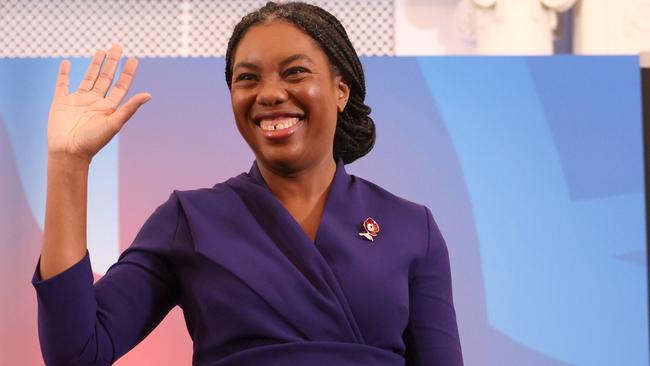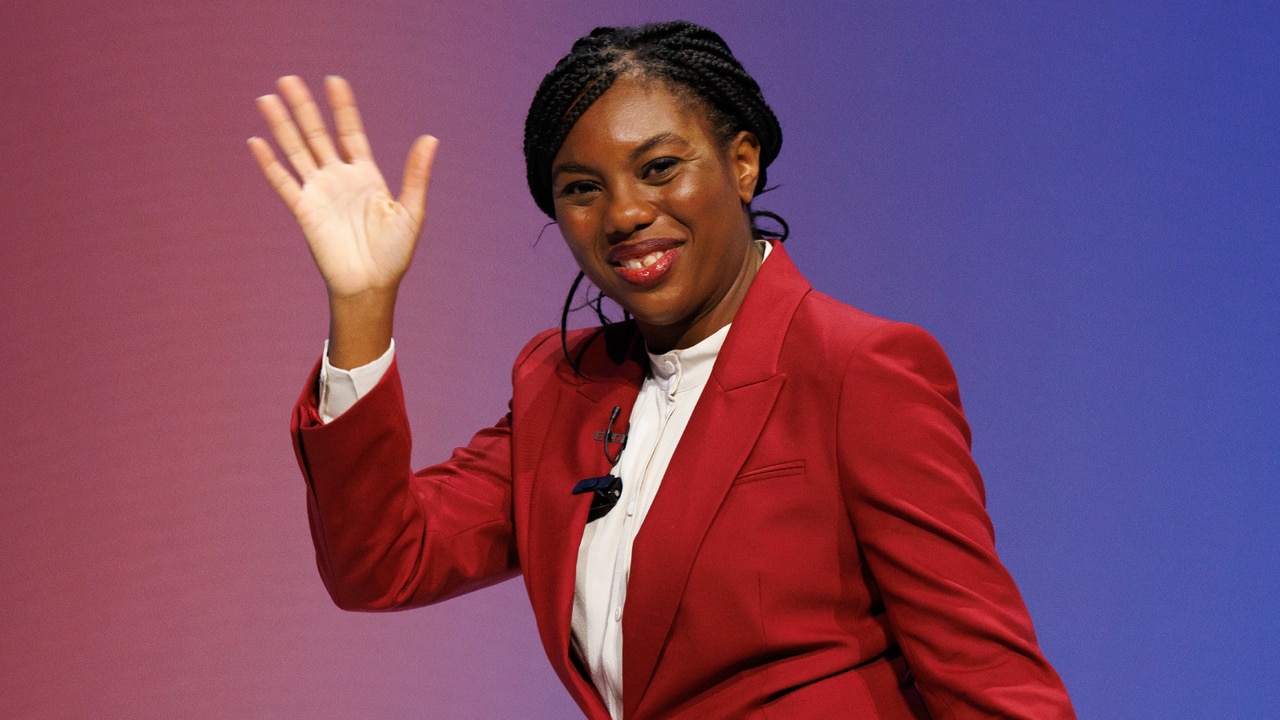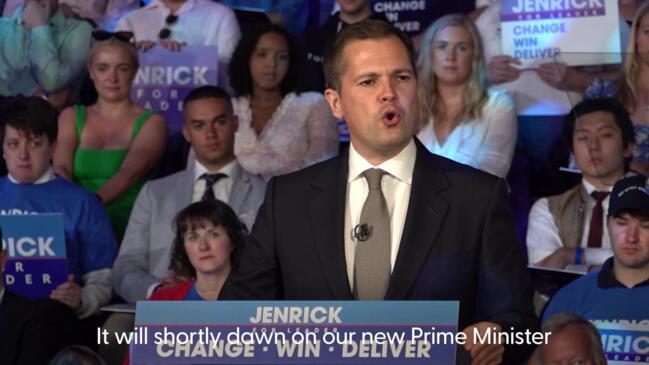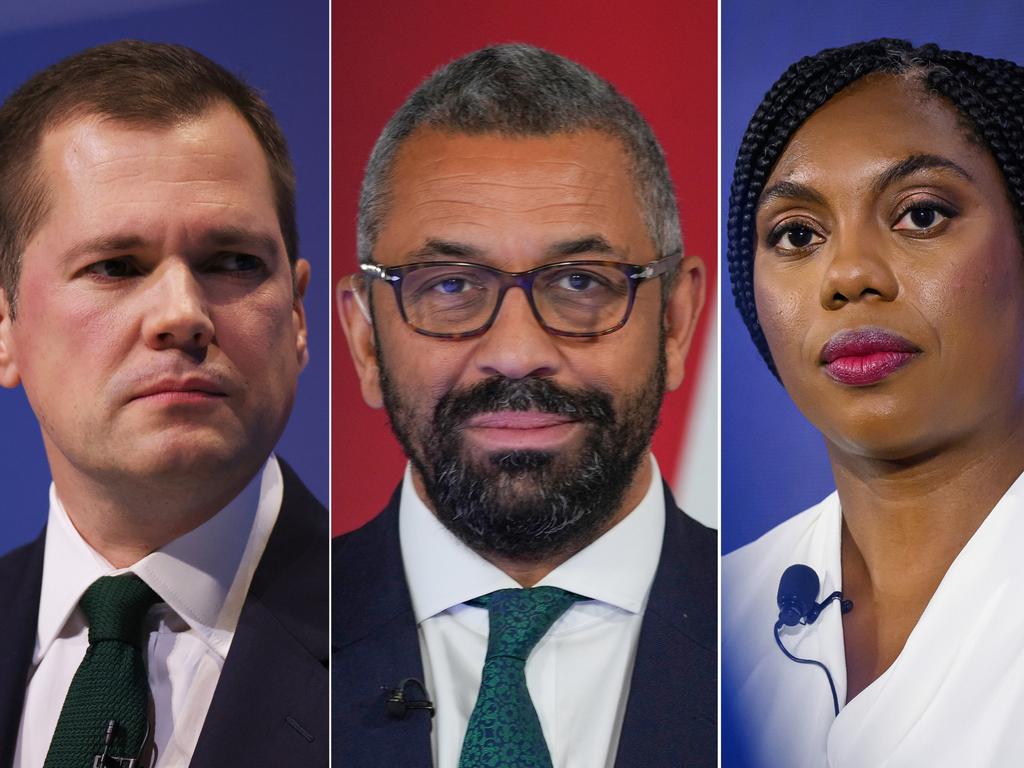Tories choose Kemi Badenoch as their first black female leader
The choice of ‘anti-woke’ Kemi Badenoch as the Conservatives’ leader is a historic moment, but she will have to rebuild a divided and weakened party emphatically ousted from power in July after 14 years in charge.

Britain’s Conservative party has chosen their first black female leader, picking “anti-woke” Kemi Badenoch over her rival Robert Jenrick in a seminal moment in the party’s history.
Ms Badenoch was chosen with 56.6 per cent of the vote against Mr Jenrick’s 43.4 per cent after Rishi Sunak resigned as Prime Minister in July.
The shadow Secretary of State for Housing, Communities and Local Government had been the firm favourite for the leadership after Shadow Home Secretary James Cleverly – who had been widely expected to win the contest – was ousted from the race.
Ms Badenoch, born in London to Nigerian parents, will be leading a much reduced cohort of Tory MPs in the chamber following the party’s disastrous election showing in July and faces the daunting task of reuniting a divided and weakened party emphatically ousted from power after 14 years in charge.
She will have to plot a strategy to regain public trust while stemming the flow of support to the right-wing Reform UK party, led by Brexit figurehead Nigel Farage.
Ms Badenoch, 44, said becoming party leader was an “enormous honour”, but that “the task that stands before us is tough”.
“We have to be honest about the fact we made mistakes” and “let standards slip,” she said. “It is time to get down to business, it is time to renew,” she added in her acceptance speech.
“The task that stands before us is tough but simple. Our first responsibility as His Majesty’s Loyal Opposition is to hold this Labour Government to account. Our second is no less important, it is to prepare over the course of the next few years for government, to ensure that by the time of the election we have not just a clear set of Conservative pledges that appeal to the British people, but a clear plan for how to implement them,” she said to supporters at Conservative headquarters in London.
“A clear plan to change this country by changing the way that this government works. The Prime Minister is discovering all too late the perils of not having such a plan. That huge job begins today.
“It will seek to involve all of our colleagues in Parliament, in the Scottish Parliament, the Sennedd, our friends in Northern Ireland, as well as councillors and party members. But this is not just about the Conservative Party. It is about the people we want to bring back to the Conservative Party. It is about the people we need to bring into the Conservative Party.
“It is about what the Conservative Party needs to be in the next five, 10 and 20 years. Our party is critical to the success of our country but to be heard we have to be honest. Honest about the fact that we made mistakes, honest about the fact that we let standards slip. The time has come to tell the truth, to stand up for our principles, to plan for our future, to reset our politics and our thinking, and to give our party and our country the new start that they deserve. It is down to get down to business, it is time to renew.
Ms Badenoch also paid tribute to rival Robert Jenrick, who had served as Secretary of State for Immigration before the Tories were trounced at the last election.
“I’d also like to pay a special tribute to Robert Jenrick who has fought a great campaign. Rob, we have all been impressed by your energy and your determination. You and I know that we don’t actually disagree on very much and I have no doubt that you have a key part to play in our party for many years to come,” she said.
Prime Minister Keir Starmer congratulated Ms Badenoch, saying in a post on social media the first Black leader of a Westminster party was “a proud moment for our country’.
Congratulations, @KemiBadenoch, on becoming the Conservative Party’s new leader.
— Keir Starmer (@Keir_Starmer) November 2, 2024
The first Black leader of a Westminster party is a proud moment for our country.
I look forward to working with you and your party in the interests of the British people.
Ms Badenoch, who was raised in Lagos, has called for a return to conservative values, accusing her party of having become increasingly liberal on societal issues such as gender identity.
She said it “talked right, but governed left”.
According to Blue Ambition, a biography written by Conservative peer Michael Ashcroft, Ms Badenoch became “radicalised” into right-wing politics while at university in the UK.
He described her view of student activists there as the “spoiled, entitled, privileged metropolitan elite-in-training”.
Ms Badenoch describes herself as a straight-talker, a trait that has caused controversy on the campaign trail.
When addressing immigration, Ms Badenoch said “our country is not a dormitory for people to come here and make money” and that “not all cultures are equally valid” when deciding who should be allowed to live in the UK.

Mr Jenrick, 42, had also staked out a tough position on the issue, and resigned as immigration minister in Sunak’s government after saying that his controversial plan to deport migrants to Rwanda did not go far enough.
After last week’s Commonwealth summit, where member states called on the UK to open talks on financial reparations for slavery, he told the Daily Mail that the British Empire’s “achievements” should be celebrated.
The former corporate lawyer has called for a legally-binding cap on net migration and for the UK to leave the European Convention on Human Rights.
On the economy, he is in favour of liberalising reforms similar to those undertaken by Margaret Thatcher in the 1970s.
Mr Jenrick, who has been an MP since 2014, is such a fan of the former prime minister that he gave his daughter the middle name “Thatcher”.

The pair faced off after Tory MPs whittled down the original six candidates during a series of votes.
Earlier Mr Cleverly admitted his shock exit from the Conservative leadership contest was a “bit of a punch to the gut”.
The shadow home secretary told the Financial Times he had repeatedly warned his backers that “Kremlinology is a fool’s game” when he briefly became the frontrunner to replace Rishi Sunak before the final ballot of MPs.
“I’d worried that that might happen,” he said. “I kept saying there aren’t many votes to play with … it doesn’t take very many people to really distort outcomes.”
He said that several of his colleagues came up to him after Mr Jenrick and Ms Badenoch advanced to the final round and regretfully admitted to tactical voting in the hope of pipping him against a preferred candidate.




To join the conversation, please log in. Don't have an account? Register
Join the conversation, you are commenting as Logout